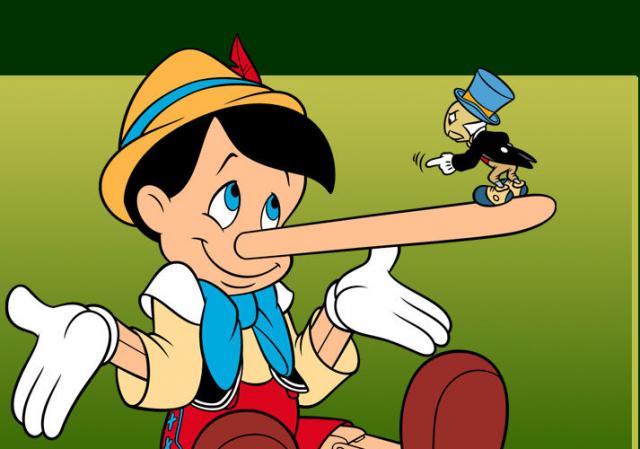Just last week, I wrote about the core problem facing the new breed of political fact-checkers: The political right is more factually wrong, meaning that taking a strictly “bipartisan” approach will inevitably leave the fact-checkers themselves guilty of phony “balance.” And it will also lead to them occasionally having their lunches eaten by left-leaning sites like Media Matters, as well as by sensible liberal bloggers.
Little did I know that PolitiFact, arguably the leading fact-checker, would immediately come through with a stunning validation of this point.
PolitiFact just announced its “lie of the year,” the Democratic claim that “Republicans voted to end Medicare.” However, if you peruse analyses from Paul Krugman, Steven Benen, Jason Linkins, and others, you’ll find that the very notion that this is a lie at all is highly debatable. Frankly, the repeated fact-checks of this Democratic assertion seem to boil down to little more than a matter of definition.
It all depends on what the meaning of the word “end” is.
Just briefly, the specifics: House Republicans voted for a bill that would turn Medicare, which is “essentially a government run healthcare program” according to the Washington Post, into a program where seniors would receive vouchers or credits to support their purchase of private health programs. Politifact itself reports that the GOP plan, introduced by Paul Ryan, “kept Medicare intact for people 55 or older, but dramatically changed the program for everyone else by privatizing it and providing government subsidies.”
Democrats then launched their “end Medicare” charge—and drew myriad bipartisan fact-checker rebukes. But these were pretty weak tea, given that the desired GOP changes to Medicare were, inarguably, quite dramatic. Here’s how FactCheck.org put it: “It’s accurate to say the GOP plan would alter Medicare profoundly, but it’s false to claim that Medicare would cease to exist.”
Whether Medicare would actually “end” under the GOP plan is thus a matter of definition. If you think changing a program “dramatically” and “profoundly” but keeping the same name means the program continues, you certainly have an argument you can make. But if someone else thinks otherwise? Your disagreement will largely be about semantics. And you can then go and have a deep “Ship of Theseus” debate about when it is that making changes to a thing means that the thing ceases to be the thing…but I really don’t think this is what we rely on our political fact-checkers for.
Honestly, I can see giving Democrats a few wrist-slaps over this, of the minor One-to-Two Pinocchio variety. And if that is all that had happened, there may have been some scattered griping, but it would have ended there.
But lie of the year? You have got to be joking.
PolitiFact’s move is especially remarkable when you survey some of the clear falsehoods that were almost lie of the year:
The economic stimulus created “zero jobs.” – The National Republican Senatorial Committee and other Republicans
Scientists are “questioning the original idea that man-made global warming is what is causing the climate to change. … (It is) more and more being put into question.” – Republican presidential candidate Rick Perry
President Obama “went around the world and apologized for America.” – Republican presidential candidate Mitt Romney
The vaccine to prevent HPV can cause mental retardation. – Republican presidential candidate Michele Bachmann
Notably, all of these big lies were uttered by Republicans. In fact, with the exception of the Bachmann example, they were uttered repeatedly by Republicans (albeit in varying forms).
But PolitiFact’s last two “lie of the year” awards (“death panels” in 2009 and “government takeover of health care” in 2010) also went to Republicans. So tagging the GOP yet again with this most devastating of charges wouldn’t appear very “balanced.”
Here again, then, we see the Achilles heel of the bipartisan fact-checkers. Whenever they must take a step that would lend clear support to the idea that the left and right aren’t equal with respect to reality, they tend to falter.
I’ve already shown PolitiFact faltering when it came to admitting that Fox News is a misinformation machine, and its viewers are the “most consistently misinformed.” Now we’re seeing it again when it comes to admitting that Republican systematic falsehoods—like the claim that the stimulus didn’t create jobs, or that global warming isn’t real—are far worse than anything Democrats say systematically and regularly (e.g., the GOP voted to “end Medicare”).
Don’t get me wrong: I fully understand why the bipartisan fact-checkers do this. If they were to be brutally honest about where the balance of evidence lies, Republican doors would close to them. Maintaining the semblance of bipartisanship surely makes them more influential.
But if you really care about facts in the current environment, having Republicans denounce you as “biased” may be good thing. In fact, it is probably inevitable.
Subscribe to our newsletter
Stay up to date with DeSmog news and alerts






